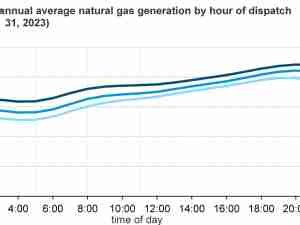The Turkish central bank is holding a record amount of dollar bills in its coffers, the outcome of foreign-exchange purchases made by a gas importer from domestic financial institutions.
State energy company Botas is buying physical greenbacks from the spot market to finance Turkey’s growing import bill and some the physical cash is finding its way to the central bank, according to people with direct knowledge of the matter.
The company, whose full name is Boru Hatlari ile Petrol Tasima AS, has mandated a local brokerage firm to carry out the transactions, the people said, asking not to be identified because of the sensitivity of the matter.
Botas and Turkey’s central bank both declined to comment.
The monetary authority in Ankara spent around $18 billion to meet state-owned firms’ FX needs during the first six months of the year, with Botas emerging as the biggest recipient. Authorities stopped those sales in July, which were a drain on official foreign reserves.
The pick-up in the amount of dollar bills held at the central bank began around the same time, with the tally reaching $7 billion on Aug. 19, roughly $2.5 billion higher than June 3, according to official data.
Mystery Plan
Botas has been hit by skyrocketing gas prices since Russia invaded Ukraine in February. In the first half of the year alone, the government injected more cash into the company than it did in all of 2021 to pay for its operational losses.
The company also borrowed $929 million from Deutsche Bank AG in July and wants to use another 300 million euros ($300 million) in syndicated loans for purchases of liquefied natural gas from Azerbaijan until the end of the year.
It wasn’t clear why Botas chose to collect physical cash from local institutions, and the people who spoke to Bloomberg declined to name the brokerage that won the mandate.
Any money kept with a Turkish lender by Botas can be held at the central bank either as direct deposits or as collateral for liabilities. Commercial lenders also make currency swap deals with the monetary authority, boosting Turkey’s official reserves.
The various mechanisms that can be used would allow commercial lenders to transfer only a part of the cash to the central bank. The actual amount that’s bought on the spot market can be greater than the rise in the amount of bills kept at the central bank.
Turkey’s total gross foreign exchange reserves stood at $71.5 billion during the week through Aug. 19. Holdings including gold were at $112.2 billion, up from $100.3 billion three months earlier.








